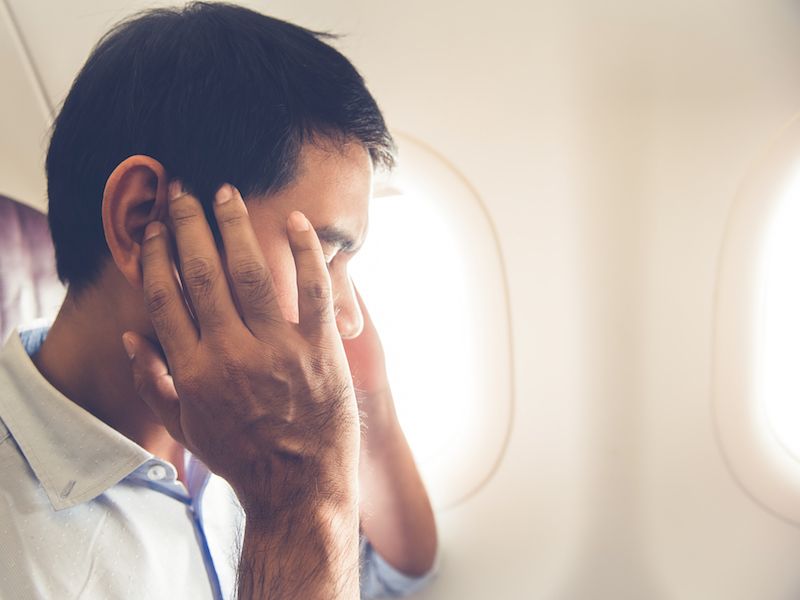
With tinnitus, it’s normal to have good and bad days but why? Tinnitus is the medical name for ringing in the ears, a condition that more than 45 million Americans experience, according to the American Tinnitus Association, and that’s accompanied by hearing loss by around 90 percent of them.
But what is hard to understand is why it’s virtually non-existent on some days and on others the ringing is so intrusive. It’s not entirely clear why this occurs, but some ordinary triggers may explain it.
What Is Tinnitus?
Tinnitus describes a condition where the patient hears phantom noises such as:
- Clicking
- Buzzing
- Ringing
- Roaring
- Hissing
One of the things that makes tinnitus so disturbing is that you hear it but no one else can. Also, the pitch and volume can vary. One day it might be a roar and the next day be gone completely.
What is The Cause of Tinnitus?
Changes in a person’s hearing are the most prevalent cause. These changes may be due to:
- Earwax build up
- Aging
- Noise trauma
- Ear bone changes
A few other possible causes include:
- A problem with the carotid artery or jugular vein
- High blood pressure
- Meniere’s disease
- Head trauma
- TMJ issues
- Acoustic neuroma
- Atherosclerosis
- Tumor in the neck or head
For a certain fraction of people, there isn’t any apparent explanation for them to have tinnitus.
If your tinnitus has just started, consult your doctor and find out what is going on with your ears. The issue could be a symptom of a life threatening condition like heart disease or it could be something treatable. It may also be a side effect of a new medication.
Why Does the Ringing Get Worse on Some Days?
It’s a bit of a medical mystery as to why some days are worse than others for those with tinnitus. And there might be many reasons depending on the person. However, there might be some common triggers.
Loud Events
Loud events like concerts, club music, and fireworks are enough to irritate your tinnitus. The number one option is to use hearing protection if you expect a lot of noise. They make earplugs, for instance, that will allow you to enjoy music at a live performance but reduce the impact it has on your hearing.
Another thing you can do is to put some distance between you and the source of the loud sound. For instance, don’t stand next to the speakers when attending a live performance or up front at a fireworks display. With this and ear protection, the impact to your hearing will be reduced.
Loud Noises at Home
Loud noises around your home can also be a problem. For instance, mowing the lawn is enough to trigger tinnitus. Consider other things you do at home that could be an issue:
- Woodworking – Power tools are loud enough to be an issue.
- Wearing headphones – The purpose of headphones is to increase the volume of your audio which could be aggravating your tinnitus so it could be time to lose those earbuds.
- Laundry – For instance, if you fold clothes while the washer is running.
If there are things you can’t or don’t want to avoid like woodworking, wear hearing protection.
Noises at Work
Loud noises on the job have the same effect as a concert or the lawnmower. If you work near machinery or in construction it’s especially important to wear hearing protection. Talk to your employer about your hearing health; they will probably supply the hearing protection you need. Let your ears rest during your off time.
Air Pressure Changes
Most people have experienced ear popping when they fly. The change in air pressure plus the noise from the plane engines can trigger an increase in tinnitus. If you are traveling, take some gum with you to help neutralize the air pressure and think about ear protection.
Changes in air pressure occur everywhere not just on a plane. Taking the right medication to alleviate sinus pressure is also helpful.
Medication
Speaking of medication, that could also be the problem. Certain medications are ototoxic, meaning they affect the ears. Included on this list are these common medications:
- Diuretics
- Over-the-counter pain relievers
- Antibiotics
If you’re experiencing a worsening of your tinnitus after you start taking a new medication, seek advice from your doctor. It might be possible to change to something else.
Tinnitus is an aggravation for some people, but for others, it can be disabling. The first step is to find out why you have it and then look at ways to keep it under control from day to day.
